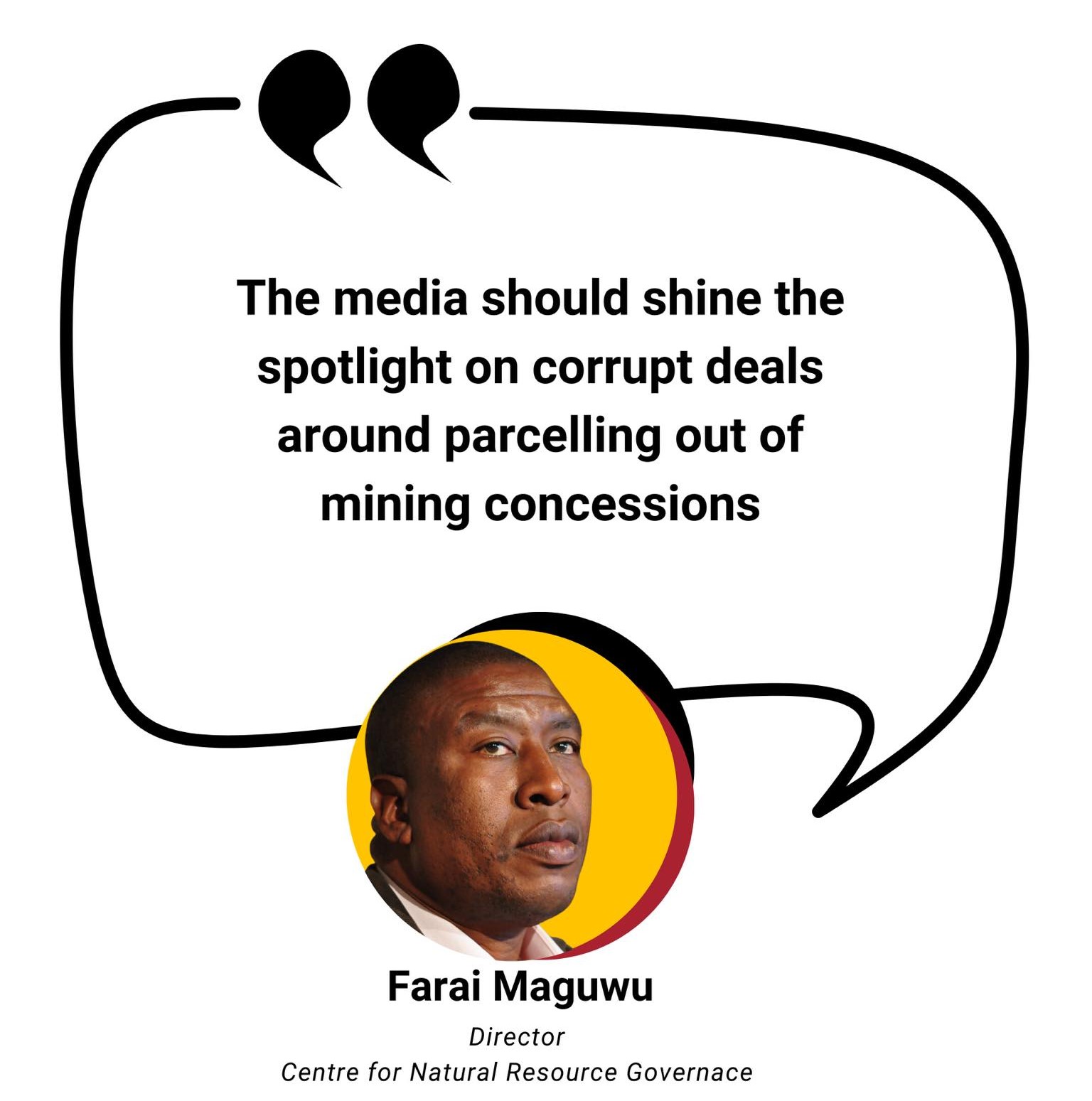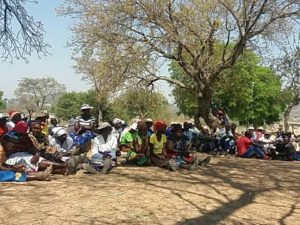NEWS

IN BRIEF
Accountability and transparency are crucial aspects of natural resource governance […]
SHARE
Accountability and transparency are crucial aspects of natural resource governance with a significant impact on the development and stability of a country. According to Farai Maguwu, countries rich in natural resources often face negative consequences, known as the ‘resource curse‘. These include poverty, high levels of inequality, corruption, authoritarianism, and military coups.
Maguwu, Director of the Centre for Natural Resource Governance, addressed a virtual discussion hosted by the Accountability Journalist Network, ALZ ‘s media community of practice, on October 31, 2023.
The idea of the ‘resource curse’ rose to prominence in the early 1990s, describing countries like Angola, the Democratic Republic of Congo (DRC), Sierra Leone, and Nigeria, which experienced extended periods of conflict and civil wars fuelled by fighting over control of their abundant natural resources.
“Scholars and think tanks began debating how to cure the resource curse. Some scholars proposed improved natural resource governance as a solution. They theorized that strengthening institutions could prevent the exploitation of natural resources for personal gain by government officials, the military, or rebel groups. These actors take advantage of weak institutions and public disgruntlement to capture natural resources and use the same to try and overthrow governments, plunging countries into instability.”
Strengthening institutions requires responsible leadership and accountable institutions for the effective management of natural resources. A country’s natural resources catalyze prosperity and positive development when managed responsibly.
 Institutions such as Platinum Lithium Zimbabwe (PLZ) mine in Goromonzi have the potential to foster mutually beneficial community development if they address local concerns regarding natural resource management. During the Goromonzi stakeholders’ engagement at the Rural District Council in Ruwa, organized by ALZ CivActs, Darlington Mutakura expressed concern about the hazardous effects of excessive dust emissions on the livelihoods of local communities. Mutakura is a Community Frontline Ambassador (CFA) for the Vendors Initiative for Social and Economic Transformation (VISET).
Institutions such as Platinum Lithium Zimbabwe (PLZ) mine in Goromonzi have the potential to foster mutually beneficial community development if they address local concerns regarding natural resource management. During the Goromonzi stakeholders’ engagement at the Rural District Council in Ruwa, organized by ALZ CivActs, Darlington Mutakura expressed concern about the hazardous effects of excessive dust emissions on the livelihoods of local communities. Mutakura is a Community Frontline Ambassador (CFA) for the Vendors Initiative for Social and Economic Transformation (VISET).
He pointed out that the market stalls of these communities are constantly covered in dust from trucks transporting lithium ore. In response, PLZ representatives emphasized their ongoing efforts to construct a tarred road from Majuru to the mine. This initiative is not only expected to enhance the company’s natural resource management practices but also stimulate infrastructural development in the communities, thus catalyzing prosperity and overall progress.
However, “without disciplined and visionary leadership, these resources can lead to governance failures, service delivery gaps, widening inequality, and become an incentive for leaders to cling to power indefinitely, ” says Maguwu.
While there is progress in raising awareness and building national consensus on the need for better natural resource management, much work remains. Maguwu highlighted that it has taken over a decade for citizens to be more active and bolder in challenging resource looting and demanding their fair share of benefits.
To combat resource looting, Maguwu emphasized the importance of public pressure. Similar to organized crime like terrorism or drug smuggling, resource looting is a dangerous activity that entrenches individuals. The public must apply firm pressure to stop this crime, and there must be consequences for perpetrators and their enablers. The connection between resource looting and the deterioration of public services, such as healthcare, roads, and access to clean water and electricity, must be clear so that citizens understand and can demand accountability from those in power.
Maguwu also discussed the role of various stakeholders in fostering accountability and transparency in natural resource governance. He highlighted the importance of the media in the accountability chain by informing the public, asking politicians the right questions, raising awareness of wrongdoings, and exposing corrupt deals. Independent institutions, such as the Mining Affairs Board and Parliament, also play a vital role in overseeing natural resource governance and holding the executive accountable.
Maguwu concluded by urging communities to unite across political divides and focus on the message of development and public goods when advocating for responsible resource governance. Civic education and support from community-based organizations and human rights defenders can level the playing field, ensure informed decision-making, and enable communities to negotiate their demands and hold all parties accountable.
This discussion highlighted the need for responsible leadership, sustained public pressure, independent institutions, community empowerment, and an informed and engaged media to foster an inclusive and equitable management of natural resources. By demanding accountability and transparency, societies can work towards overcoming the resource curse and promoting sustainable development.
—
Bathabile Dlamini is the Media and Communications Officer at Accountability Lab Zimbabwe
